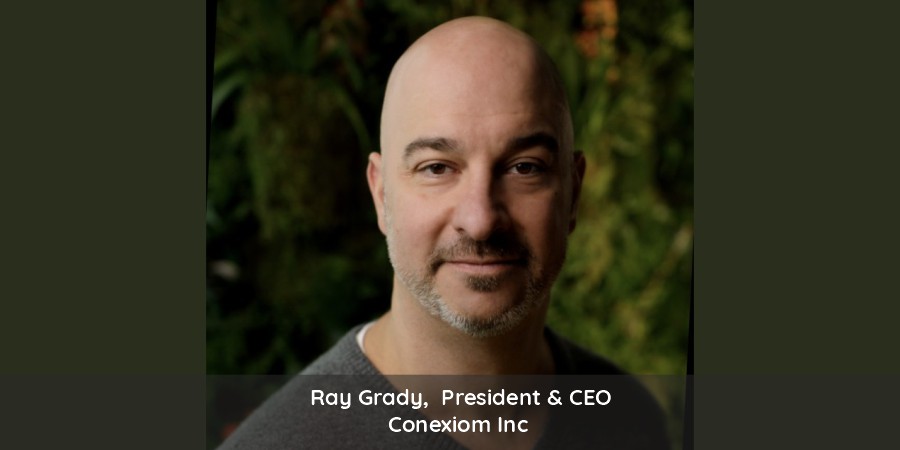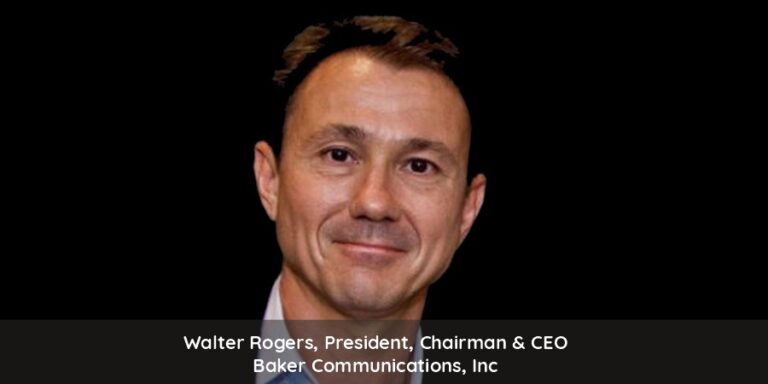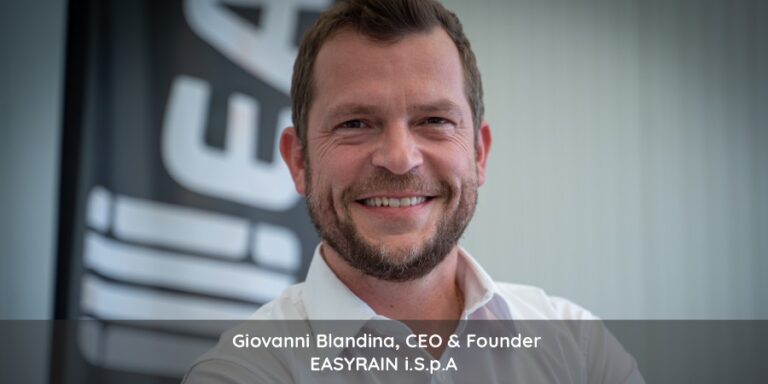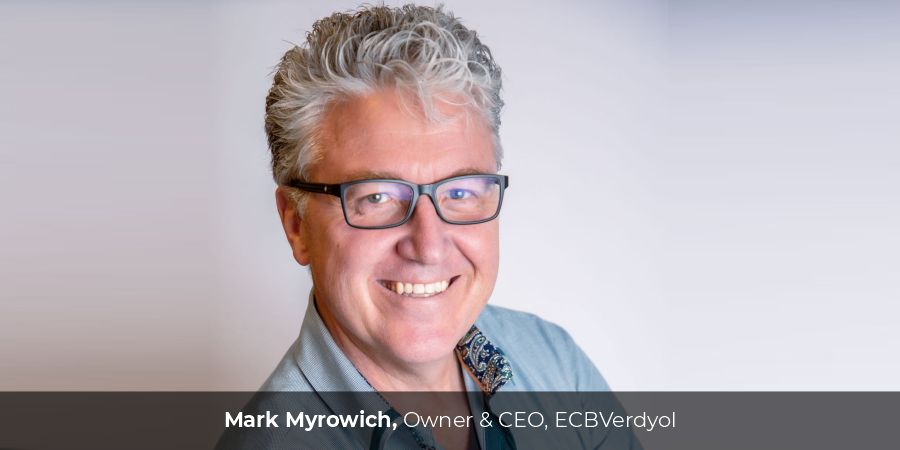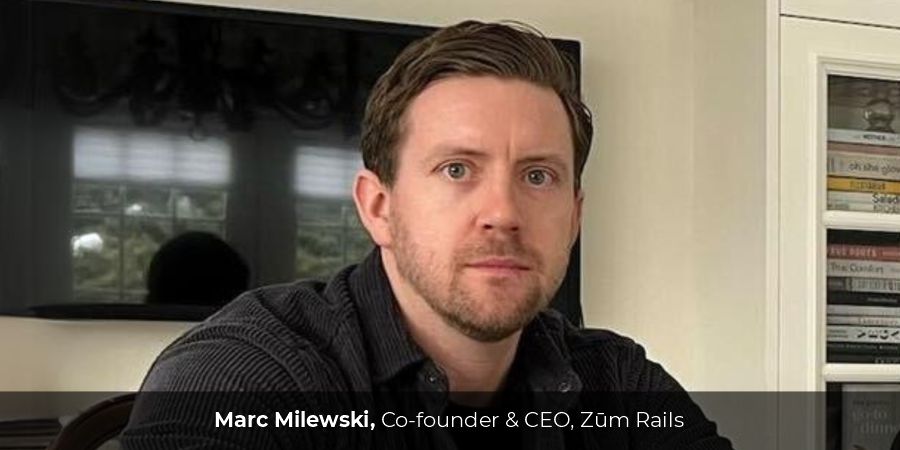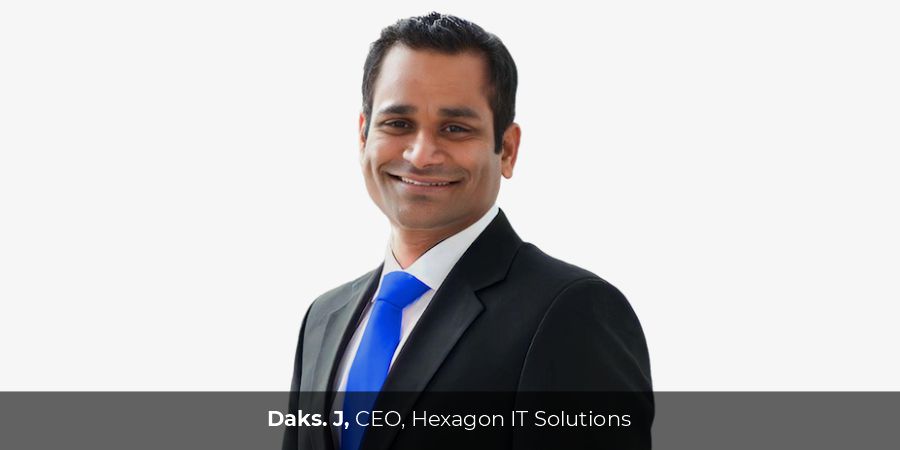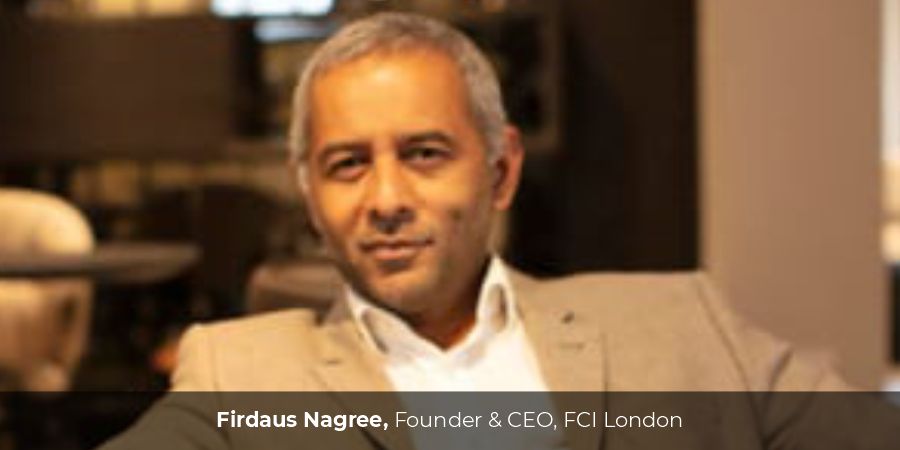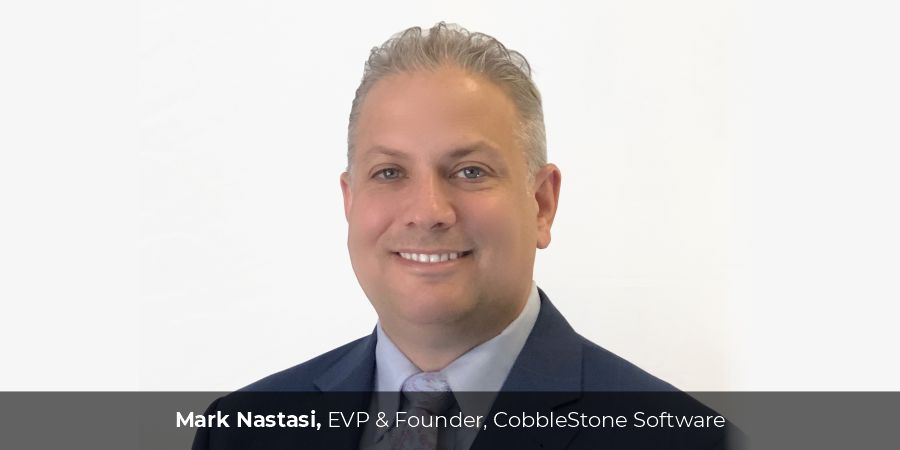Founding Year: 2005
Office Locations: Vancouver, BC; Chicago; Kitchener, ON; London; Munich
Website: https://conexiom.com/
For businesses that are still manually processing emailed documents like purchase orders, AP invoices, and order acknowledgments, Conexiom can alleviate your team from manual data entry. Conexiom’s proprietary Touchless automation technology instantly extracts the data from complex business documents with 100% accuracy, transforms the data to its final format according to predetermined business rules and logic, and delivers the correct data directly to your technology system. As a result, emailed documents are processed quickly and accurately without a human in the loop.
Excerpts from The Chief’s Digest conversation with Ray Grady, CEO & President, Conexiom
What are your company offerings? How have customer responses shaped them over the years?
We’re an automation platform specific to the transactions that sit inside a company’s order-to-cash process, procure-to-pay process, or within their supply chain activities. We initially started by automating sales orders nearly two decades ago. Fast forward to 2022, 45% of every order a manufacturer distributor receives is manual, meaning their customers will go to the ERP system and create an order. They will then attach it via email and send it to the customer. That’s the problem we have historically solved for customers.
What we realized is there are specific attributes in a sales order. It’s transactional in nature. The data moves around in that document, and there is business logic specific to every trading partner that is unique. Besides, there are lookups and things that have to happen from an ERP perspective to translate what the customer wants versus what our customer called it in their ERP system.
So, we looked at those attributes and said, you know an AP invoice has a very similar set of attributes to a sales order. We also looked at the supply chain and said things like an order acknowledgment, or advance ship notice have similar attributes. Our customers have guided us; we’ve looked at those attributes and now have a platform that can support the supply chain, AP, and sales.
Every business, big or small, gets its fair share of challenges, especially during the initial days. Tell us about your challenges and how you managed to overcome them.
When we started, it was just an idea. There weren’t many companies out there that even thought about automating a complex document like a sales order. We were kind of going about something a little bit differently, and they surely didn’t think one could do it with 100% accuracy. So, what we struggled with then, even to a lesser degree, struggle with now is having customers believing we can do what we do.
Today, we have more than 500 customer references that can pick up the phone and say, ‘Yeah, these guys have done this for me, and it’s a touchless outcome. I’ve been able to remove the human from the loop and have them do more valuable tasks.’ But when we first started out, it wasn’t like we were a new entrant in an established marketplace. We were establishing a marketplace and a company at the same time.
On what ideals are your work culture and business ethics based?
We take our vision and values really seriously to the point where we walk all of our new employees joining us through the core values of the business. Our values are pretty straightforward. First, we care for each other. This can be an intense job as we’re doing a mission-critical task for a set of customers, but ultimately, we want to work together and make sure we are having fun.
We want to hold everybody accountable. That’s another value. We hold ourselves accountable. We want to make our customers heroes. We over-communicate with each other, and then, we want to make change for the better in the communities, and we want to be inclusive.
How do you define success? Do you think there is some sort of formula to be successful?
There are a number of ways one could define success. How we define it at Conexiom is that we look at our customer NPS very seriously. It’s a great indicator of if we are being successful in delivering value to our customers and exploring our customer’s sentiments when it comes to how we are serving them. We also look at it via things like G2 Crowd.
We also then look at our ENPS, our employee net promoter score. It’s important for us to know if we are doing a good job of making this a great place to work. Do people take this to be a platform to build off their careers? Do we see people progressing in their careers, getting promoted, taking on new responsibilities, etc., which we’ve proudly been able to do over the years? And then, obviously, there are the financial metrics that can ultimately show to the market and our investors. Are we making progress? Are we growing? Are our bookings growing? Is our profit in line with the best-in-class business? Is our retention in line with the best-in-class business? All of those factors are how we measure success.
What would you say are the factors that have contributed to your success as an organization?
We’re lucky to sit in a total addressable market. It’s a multi-trillion-dollar TAM across Europe and in the U.S. We’re also seeing that manual entry is a problem that everyone has. If you look at small to large enterprise companies, they have people doing manual tasks that are not value-added, and the company would rather have those people doing other things to help move the needle for the business.
Another contributing factor is things that are happening in the world today. We automate complex trade documents in the supply chain, which in turn frees people up to go, and spend time to identify how to solve a customer problem due to a supply chain challenge that is really relevant in today’s marketplace. We deliver technology that will allow a customer to maybe not have a human in the loop to do certain tasks in a world where we are now faced with the Great Resignation where it’s hard to hire people. That’s a real value-added component.
What do you think is a unique aspect of your business?
I think one of the most unique aspects of our business is the fact that we can deliver real value to a $10 Million family-owned distributor, and on the same day we can deliver the same value to Exxon, or to Honeywell. I think a unique attribute of this business is the ability to grow those segments concurrently. It’s almost a 50/50 split between bookings in revenue between our enterprise customers and our mid-market customers.
Where do you see your company a few years from now?
We’re going to continue to grow. I think automation is going to become more and more topical, and since we’re in the right space, you’ll see us evolve, innovate and roll technologies out that will make it easier to get our customers live.
I think you’ll see the power of machine learning really kick into our business. Our customers need to get up and running as fast as possible so they can start to pay off the business case. We will make investments that will help our customers achieve those goals, and quite quickly the market will see us become much more of an international brand that we are today.
Knowing Ray Grady
Ray brings more than 20 years of experience in scaling high-growth B2B organizations and leads the company in designing and executing Conexiom’s vision, strategic growth plans, and company operations.
Ray comes to Conexiom from Salesforce B2B Commerce, where he held the role of SVP, COO, and GM. Previously, Grady was President and COO of CloudCraze, where he led the company through its 2018 acquisition by Salesforce. Grady’s extensive experience also includes roles as SVP and GM of Acquia, one of the fastest-growing SaaS providers in the world, and the co-founder of Acquity Group, which went public in 2012 before being acquired by Accenture Interactive in 2013.
“We want our company to look like the communities where we live. We really try to adhere and align to the values of the business and stay true to them every day.”



